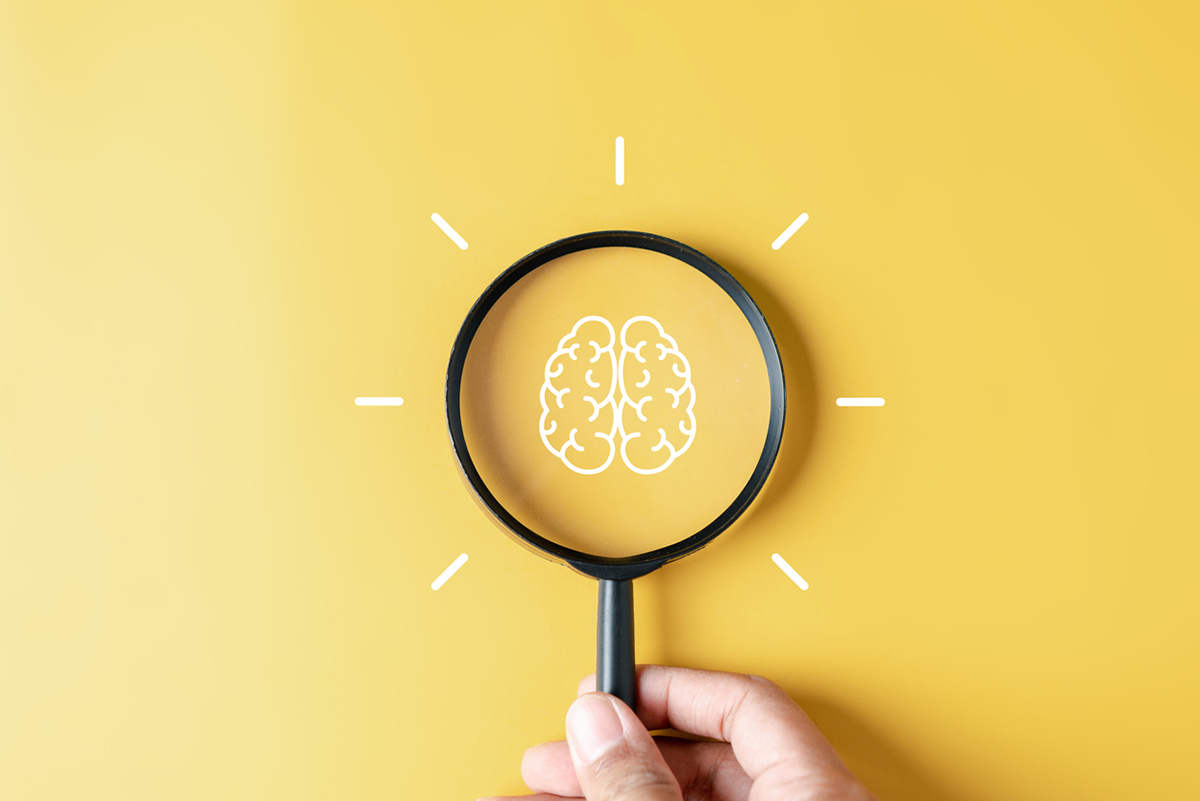Originally formulated for individuals who are involved in contact sports or other high-impact activities, you don’t have to be a professional hockey player to benefit from SynaQuell™. A highly innovative formula from Thorne, one of the industry’s most cutting-edge companies, SynaQuell™ is rich in ingredients that support brain function. I’ve added it to my personal daily regimen to fend off cognitive decline. Below is a comprehensive run-down of the science behind SynaQuell, from my friends at Thorne.
—Dr. Ronald Hoffman
This article contains content from one of our trusted sponsors.
These days you hear a lot about supplements and medications that support brain functions, like memory and mental focus, and if you watch commercial TV, then you are bombarded with supplement ads about ingredients in jellyfish and the like. This article, however, focuses on what you can do to support the structure of your brain. How often do you think about that? We think about supporting the structures of our bones, joints, skin, and hair, but our brain? Your brain is a busy place, so it’s important it be provided with the necessary nutrients so it can stand up to the wear and tear it deals with.
What can damage brain cells?
Your brain is surrounded by a protective cushion of cerebrospinal fluid, which is further protected by the skull. When your brain experiences a sudden impact, it can slam against the skull, which can stretch and even break delicate fibers. Even minor impacts can result in micro-damage to your brain that can disrupt its delicate electrical and chemical balance.
Sports injuries, car accidents, falls, hits with falling objects (such as during a storm), and domestic violence can all result in minor or major brain injuries. Non-traumatic causes of brain injury can be exposure to toxins, infections (especially one that causes a high fever), or anything that cuts off oxygen to a part of your brain – like a stroke or a near drowning.
Nutritional support for brain structure
Although diet and nutritional supplements can’t prevent you from having an accident, there are specific nutrients that nourish your brain and provide protection in case of a sudden impact or other exposure that can compromise brain integrity.
Omega-3 fatty acids
The cerebral cortex is the outermost layer of your brain where lots of activity takes place. Did you know that three percent of the brain’s outer layer (by weight) is comprised of the omega-3 fatty acid DHA? In addition to supporting memory, DHA is essential for nerve cell formation and a balanced inflammatory response.*
Unfortunately, although football players are subjected to frequent brain impacts, a study of college football players found they tend to have insufficient amounts of DHA and also EPA (another omega-3 fatty acid).1
The best dietary sources for DHA are fatty fish; salmon contains the highest amount with a whopping 1,250 mg per 3-ounce serving. Other good fish sources of DHA include:
- Herring – 940 mg per 3 ounces
- Sardines – 740 mg per 3 ounces
- Mackerel – 590 mg per 3 ounces
- Trout – 440 mg per 3 ounces
If you don’t eat fish regularly or at all, then consider a nutritional supplement that contains DHA. And for vegans or vegetarians, DHA can be sourced from algae. Two other advantages to acquiring DHA from a supplement: you know exactly how much DHA you are getting and the oil has been tested for mercury and other contaminants.
Beta-hydroxybutyrate (BHB)
Beta-hydroxybutyrate is a ketone your brain can use for energy, even more efficiently than glucose. Ketones cross the blood-brain barrier and can provide as much as 70 percent of the brain’s energy needs – for both an injured and uninjured brain.2 BHB, the body’s most prevalent ketone:
- Supports blood flow to the brain*
- Helps the brain resist oxidative stress*
- Has neuroprotective properties*
- Promotes the formation of mitochondria – the energy powerhouses of the cell – which increases energy production in brain and nerve cells*
How do you get this important nutrient to your brain? One way is via the ketogenic (keto) diet, which has been shown to increase energy production in the brain. Not interested in going the keto route? BHB can also be acquired as a nutritional supplement.
Branched-chain amino acids (BCAAs)
The three BCAAs – leucine, isoleucine, and valine – are essential amino acids (meaning your body can’t make them so they need to be consumed in the diet or in supplements).
You’ve probably heard of BCAAs for muscle building. But they are also important nutrients for your brain and have been shown to decline when you need them most – following an impact to your head.3 One study found low BCAA serum levels increased within an hour of supplementation,4 after which they can readily cross the blood-brain barrier. BCAAs are essential for making three important neurotransmitters – dopamine, serotonin, and norepinephrine.*
Antioxidants CoQ10 and glutathione
Because of its high oxygen use and fat content, the brain is susceptible to oxidative stress – particularly after an injury. That’s where antioxidants like CoQ10 and glutathione come in. Research shows the level of glutathione declines after a brain injury, which makes brain cells more susceptible to free radical damage.5
In addition to its antioxidant benefits, CoQ10 supports energy production in the mitochondria of every cell in your body, including your brain.* Although CoQ10 is present naturally in your body, its level tends to drop with age, as well as after intense exercise.
Cellular energy with nicotinamide riboside
In addition to CoQ10’s support of mitochondrial function, nicotinamide riboside (NR) supports cellular energy production by converting to NAD+ in the body. Among its many functions, NAD+ protects brain cells from injury.*
Balanced inflammatory response
The brain is also susceptible to inflammation after an injury. Several botanical extracts support a balanced inflammatory response in the brain, including curcumin and resveratrol.*
The solution
Where can you find these important brain-supportive nutrients in one place? Enter SynaQuell™, a multi-ingredient formula containing the best-researched nutrients for supporting brain structure and healing, as well as enhancing cognitive function.* In addition to the nutrients discussed above, SynaQuell™ also contains the brain-supportive nutrients magnesium, riboflavin (in its active, tissue-ready form R5P), and betaine (to promote methylation).*
SynaQuell™ was formulated for individuals who are involved in contact sports or other high-impact activities, although anyone desiring nutrient support for the brain could benefit.*
References
- Anzalone A, Carbuhn A, Jones L, et al. The omega-3 index in National Collegiate Athletic Association Division I Collegiate Football athletes. J Athl Train2019;54(1):7-11. doi: 10.4085/1062-6050-387-18.
- White H, Venkatesh B. Clinical review: ketones and brain injury. Crit Care 2011;15(2):219. doi: 10.1186/cc10020.
- Jeter C, Hergenroeder G, Ward N, et al. Human mild traumatic brain injury decreases circulating branched-chain amino acids and their metabolite levels. J Neurotrauma 2013;30(8):671-679. doi: 10.1089/neu.2012.2491.
- Cole J, Mitala C, Kundu S, et al. Dietary branched chain amino acids ameliorate injury-induced cognitive impairment. Proc Natl Acad Sci U S A 2010;107(1):366-371. doi: 10.1073/pnas.0910280107.
- Koza L, Linseman DA. Glutathione precursors shield the brain from trauma. Neural Regen Res 2019;14(10):1701-1702. doi: 10.4103/1673-5374.257520.








